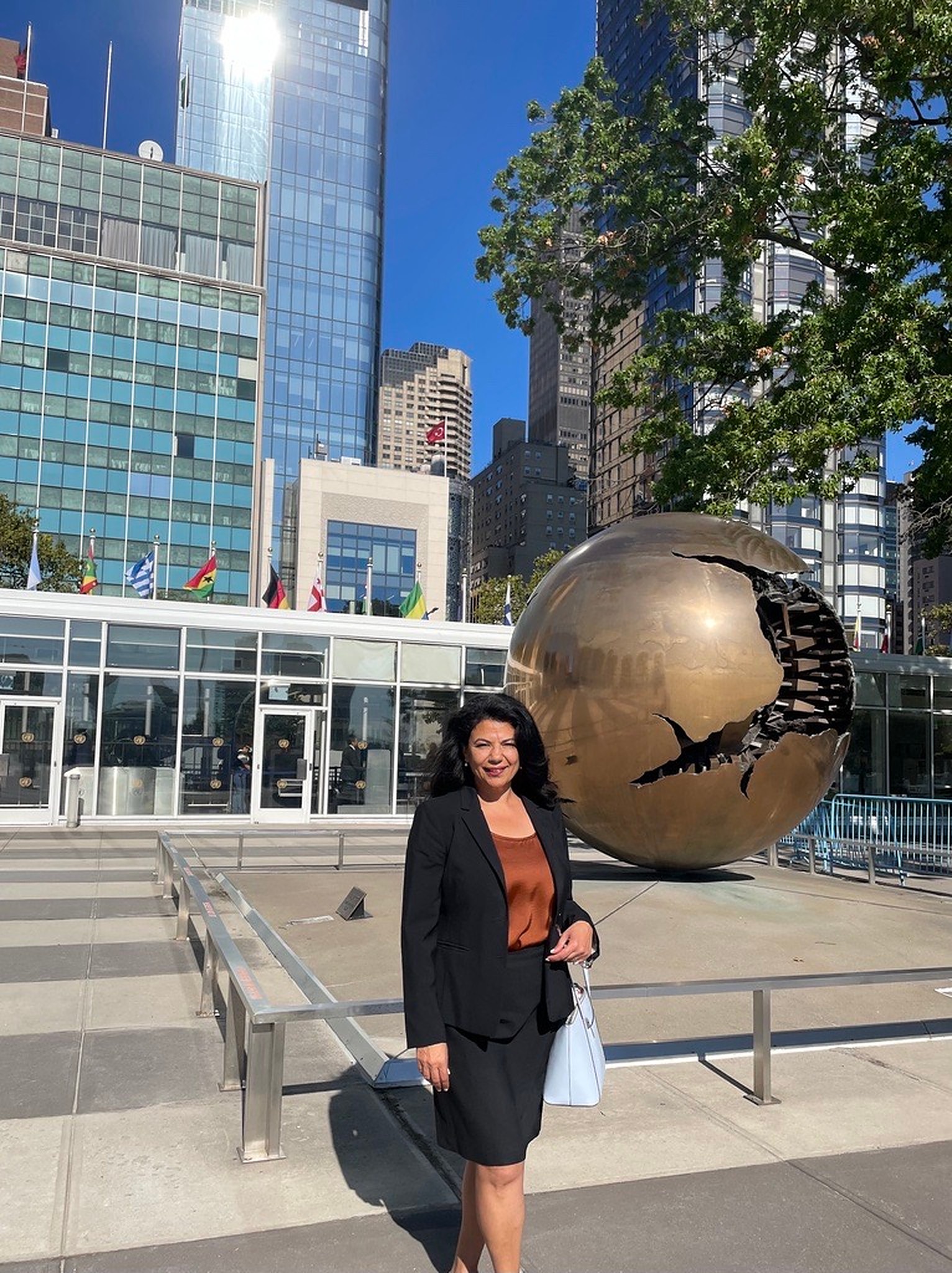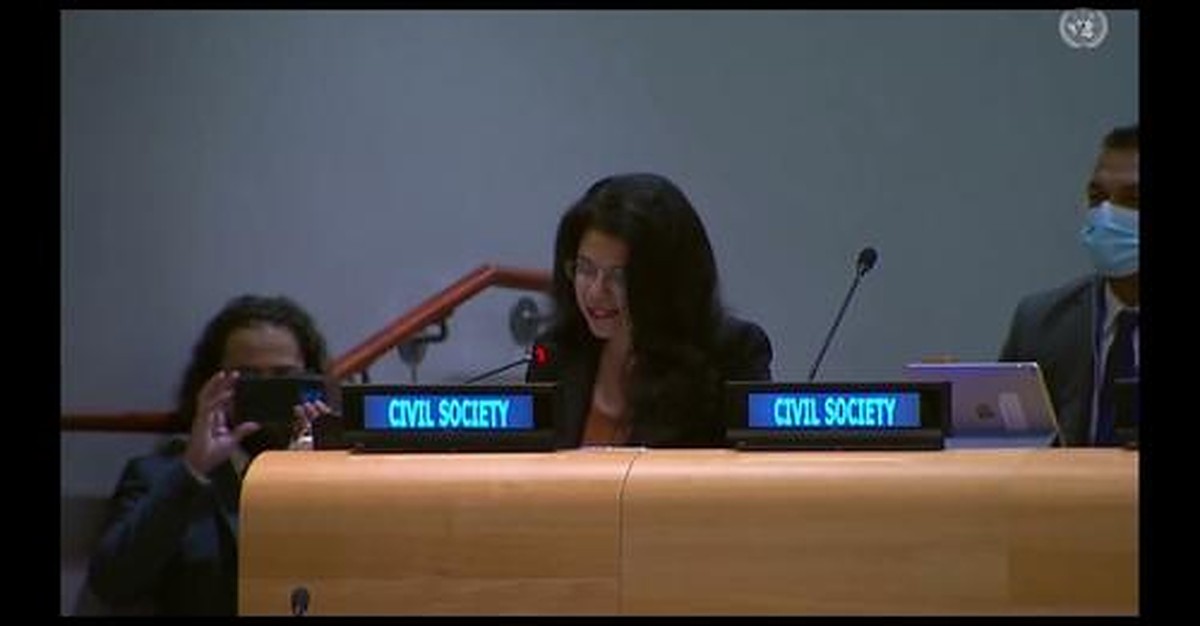
Amplifying the voice of Egypt’s Coptic minorities on the global stage, Nermien Riad, founder and executive director of Coptic Orphans – an international Christian development organization – was chosen to speak at the 77th session of the United Nations General Assembly to celebrate the 30th anniversary of the UN Declaration on Minority Rights.
This year-long 30th anniversary focuses on the theme “All in 4 Minority Rights” to promote the belief that the rights of any person belonging to national or ethnic, religious, and linguistic minorities contributes to the political stability and progress of states, and serves as an important ingredient to maintaining peace.
As a Coptic Christian, Riad knows first-hand what it is like to be a minority in Egypt, which helped her shape the core vision of the organisation; one that is based on fostering unity and equality between the Egyptian people. Her frequent visits to orphanages in Egypt, coupled with her strong networking and connection with communities, enabled her to form a unique volunteering model that connects between a network of volunteers in the US and the church community in Egypt.
“We suffered as a people, but we were never defeated,” Riad stated in her speech at the United Nations’ General Assembly. “We held on to hope, and have not only become model citizens of our homeland, but have also in the past few decades spread our wings around the world, with the Coptic community now stretching from Japan to California.”
To help make the Declaration’s principles a reality for minorities, Coptic Orphans has since its inception helped fully fund the educational development of 75,000 vulnerable children across Egypt; proving the persistence of Copts to continue to play a positive role in building Egyptian society.
As Coptic Orphans is a faith-driven organisation, which applies the commands of Jesus Christ to nurture love and service for all, Coptic Orphans’ Valuable Girl project encourages tolerance by bringing together Christians and Muslims in a safe space where they can communicate and express mutual respect.
In the Valuable Girl project, girls in secondary school are trained to be “Big Sisters” and role models for their primary school “Little Sisters”, which helps to unlock the leadership skills of young women in Egypt through the power of education and activities that tackle community clashes and problems.
The model of the mentor “Big Sister’ and the “Little Sisters” helped foster a stronger trust among the families in the villages that they target across Upper Egypt. Rather than directly sending the girls to school, the families feel a greater sense of ease that their daughters are guided and trained by a mentor, which encourages them to stay in school and avoid early marriage.
“During one of my visits, one of the ‘Big Sisters’ in the program came up to me and said she used to pray that the Earth would split open and swallow her whole rather than have to walk the same street as the local priest,” Riad shared. “After the program, the same priest was one of the first people invited to her wedding.”
Riad concluded her speech by saying that she hopes that “future generations continue to pursue equality, so that through love, we can continue to break down the barriers of oppression and heal the wounds of a broken world.”
The Declaration, which is the only UN international human rights instrument devoted entirely to minority rights, provides guidance and pathways to support governments and minorities to uphold minority rights through non-discrimination, amplifying voices of minorities and promoting their effective participation in development and decision-making.
In 2021, Coptic Orphans was granted the United Nations Consultative Status, which is the highest status granted by the UN to non-governmental organisations.
In its statement on the NGO, the United Nations highlighted that “diasporic communities bridge the gap between local and global markets, incentivizing pathways for entrepreneurship and transforming the investment climate in home countries.”
As the largest ethno-religious minority in Egypt, constituting roughly 10 percent of the country’s 95 million people, Coptic Christians have been victims of persecution, sectarian violence and repeated attacks on their churches, with a long history of being marginalised.







Comments (0)